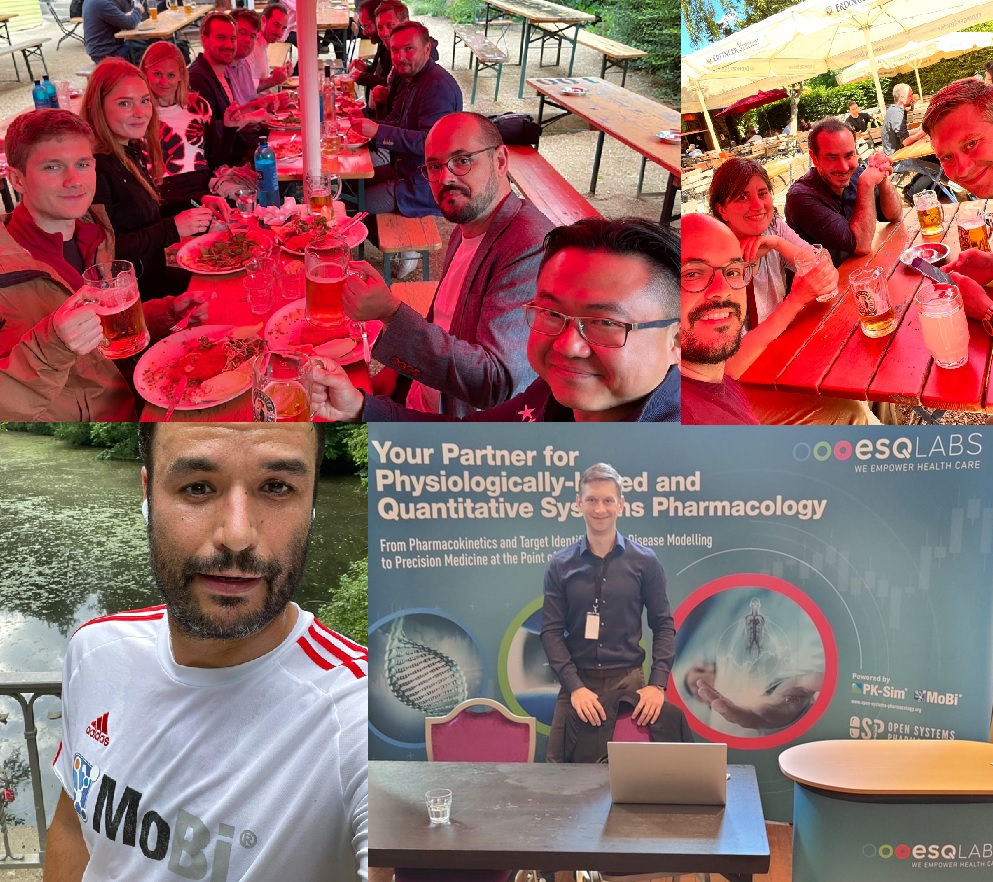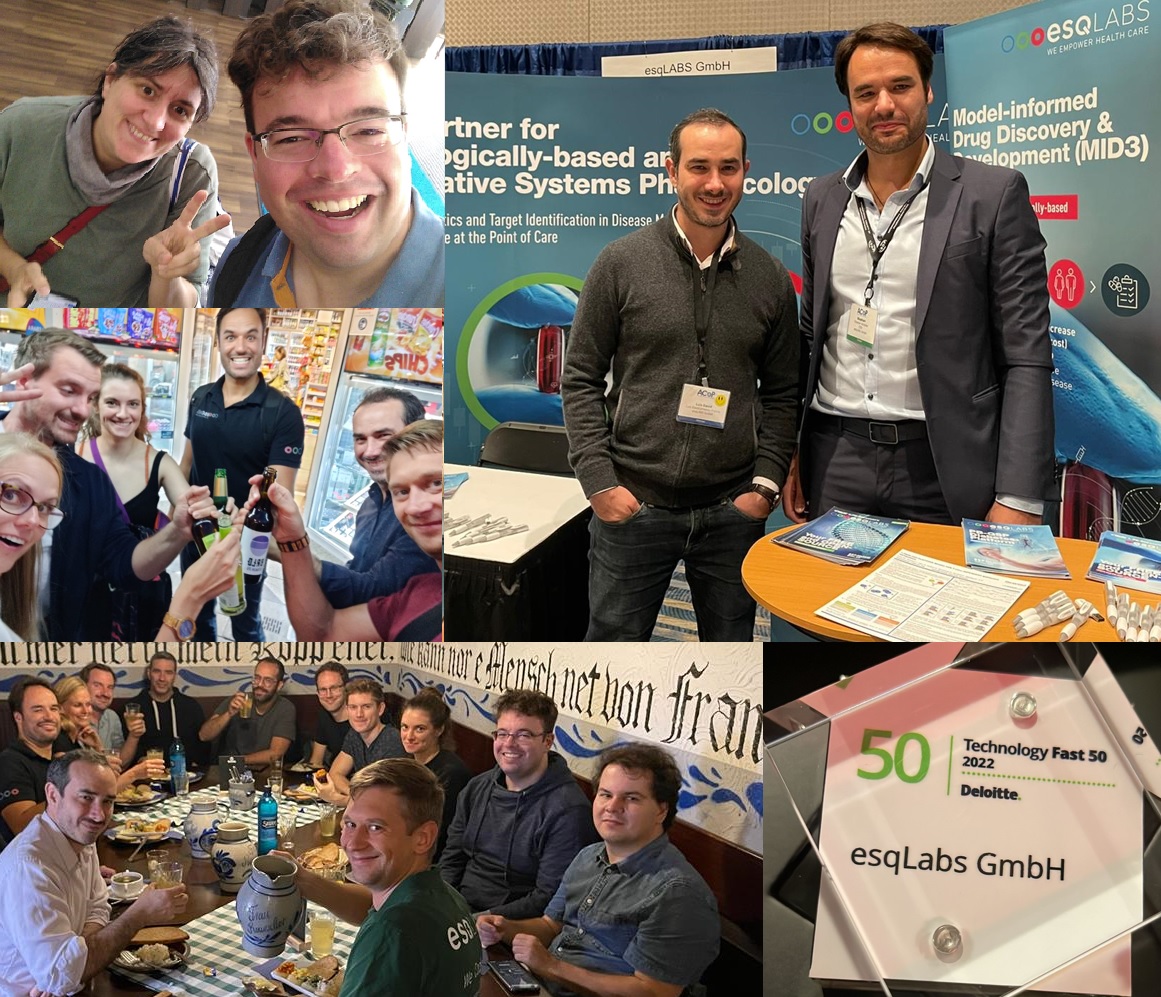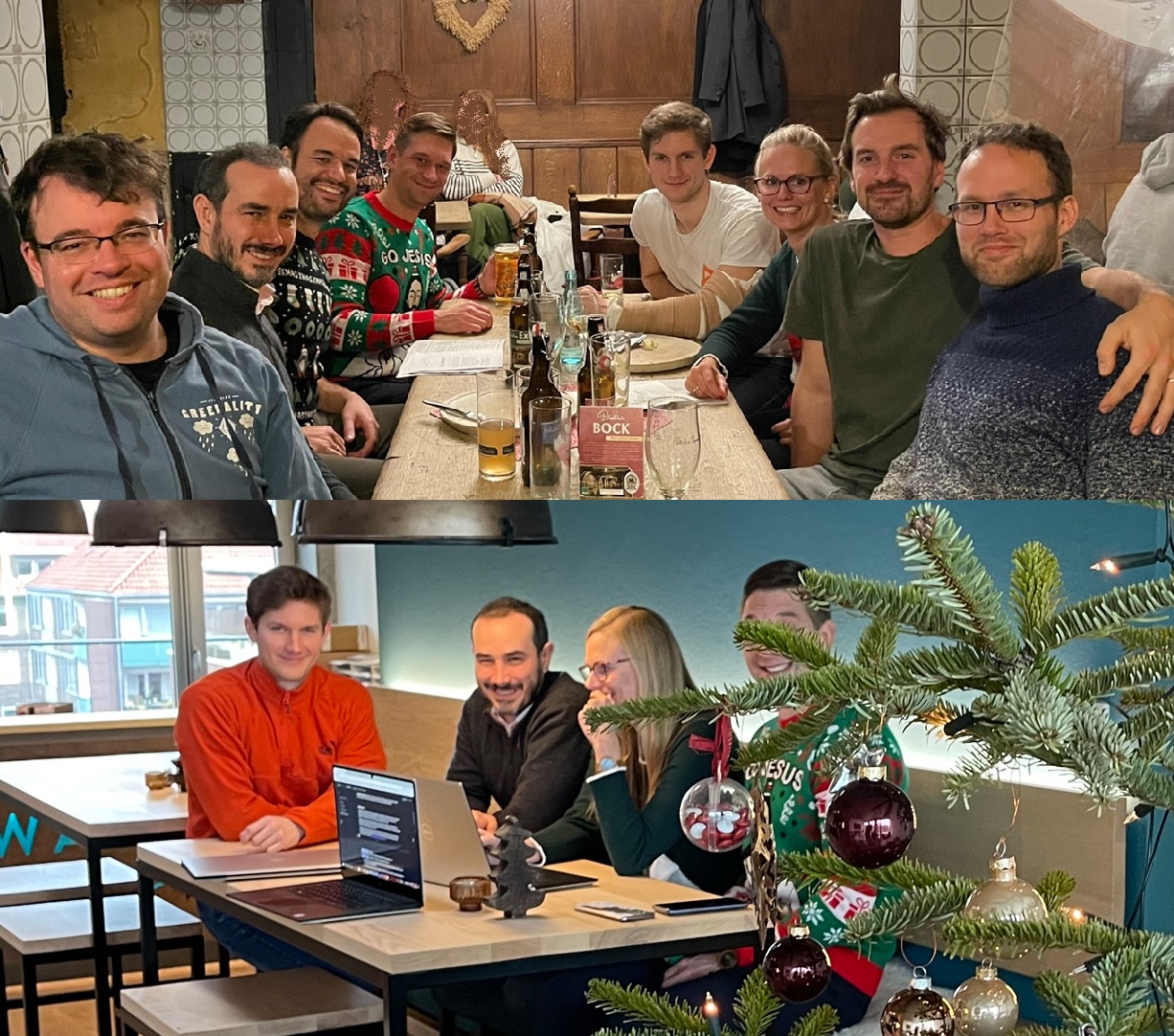2022 in Review for the esqLABS Team

2022 in Review for the esqLABS Team
2022 was a very productive year for the esqLABS team. After multiple conferences, training workshops, and new projects, we continued as motivated and committed as on our first day. Having started as a one-man show, we grew now to 15 people.
To conquer the ever-growing challenges and opportunities that this year brought us, our new colleagues Wilbert, Sergei, and Rob were vital. In addition, we welcomed our very first Ph.D. student, Rene (University Hospital Aachen), who joined us to support our contribution to the ONTOX consortium.
The increased company size required new areas of responsibility and ways of running the company. As the show must go on, we learned how to enhance our productivity, and we strengthened our sense of belonging in a workshop hosted by explayn consulting GmbH. This investment has already paid off, and we are now working like a well-oiled machine, which has been publicly recognized by obtaining 32nd place as one of the fastest-growing companies in Germany at the Deloitte Fast 50 Awards.
Moreover, esqLABS continues to be an active member of the Open Systems Pharmacology community, driving the collaborative open-source and open-science mindset in the modeling community. With a major contribution of our software team, a new version of the software (OSPS v11) has been released, which will be followed by an update with improved user experience (v11.1) at the end of the year.


Aiming at helping users to fully exploit the OSPS capabilities, we launched our comprehensive online learning platform in July, which is free of charge for academia. On the platform, we explain in a step-by-step way how to use the OSPS to create and apply PBPK and QSP models with different levels of complexity, from simple PK simulations to complex drug-drug interactions and tumor growth modeling.
As part of our commitment to advance the reduction and replacement of animal testing in risk assessment and drug development, we secured funding through a Crack-IT challenge (The Virtual Dog; with Partner Fraunhofer) and two research projects with EFSA. We continue to innovate the 3Rs with our development of computational platforms for organ-on-chip systems. Here, our OoC expert, Christian Maass, gave a keynote lecture at the 4th annual meeting of The European Organ-on-Chip Society (EUROoCS) in Grenoble this summer on integrating biological data with human digital twins to help reduce drug attrition and optimize the experimental design. This helped us secure funding for a landmark study, together with dynamic24, the University Hospital Jena, and a pharma partner, to investigate how compounds cross the blood-placenta barrier in vitro and integrate this with our digital twin technology.
Despite the busy year, we didn’t forget how to have fun. We enjoyed our F2F meetings in Berlin, Frankfurt, and Münster and reconnected with partners and friends at several conferences (SOT, QSPC, PAGE, ACoP. OpenTox, ICT, and many others). It was great to be able to meet again in person with colleagues, collaborators, and friends! And as our CEO says: “Relationships are the key value add in our lives” (or as we say: “work hard, play hard”).
In summary, 2022 was a great year for the esqLABS family, and our simulations predict that 2023 will be even better.
Stay tuned. More news will follow next year!

Get in touch now
Contact
ESQlabs GmbH | Am Sportplatz 7 | 26683 Saterland | Germany
Tel. +49 151 / 58559070 | info@esqLABS.com
This site does not use cookies to track your personal information